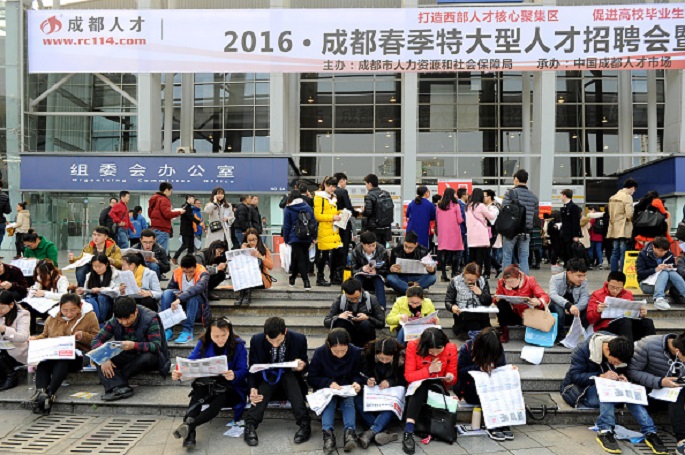Looks like China’s recent batch of college degree holders doesn’t want to land a job that will make them sweat or get their hands dirty. It seems most of them desire to work inside air-conditioned offices wearing corporate attire.
College graduates get better chances of being absorbed by companies in knowledge-intensive industries, according to MyCOS Research Institute’s College Graduates’ Employment Annual Report released on June 12, reported China Daily.
In particular, industries associated with information technology experienced an increase in application last year.
MyCOS Deputy Director Guo Jiao told China Daily that in 2010, 8.5 percent of graduates applied for jobs belonging in the field of telecommunication, media and information technology. In 2015, the numbers jumped to 10.5 percent.
The report likewise revealed that college graduates show little interest in applying for jobs offered by labor-intensive industries.
According to McKinsey & Company, a New York-based worldwide management consulting firm, China will experience a huge shortage of high-skilled workers--about 24 million fewer--by 2020, reported China Daily.
High-skilled workers are those who obtained advanced vocational training or a degree from universities.
Employment opportunities in knowledge-intensive industries, however, do not always guarantee a high salary package.
The 2015 College Graduates’ Employment Annual Report named the 10 lowest-paying white-collar jobs in 2014.
These 10 jobs employ applicants who hold degrees in geographical sciences (a monthly salary of 3,279 yuan), politics and government administration (3,258 yuan), nursing (3,213 yuan), horticulture and landscape design (3,199 yuan), medical imaging (3,172 yuan), history (3,165 yuan), traditional Chinese pharmacology (3,138 yuan), preschool education (3,106 yuan), clinical medicine (3,061 yuan) and traditional Chinese medicine (2,193 yuan), reported China.org.
Unemployment continues to plague graduates. Many of them decide to live together in cramped rooms and keep each other company as they look for jobs.
Lian Si, author of “Ant Tribe” (2009) and “Ant Tribe II: Whose Era Is It?” (2010), coined the term “ant tribe” to refer to groups of Chinese graduates who are jobless or are working but either underpaid or underemployed.
BBC described in 2014 the “ant tribe” as “a growing phenomenon.”
From 6.5 million college graduates in 2010, China welcomed 7.5 million in 2015, according to online publication Sixth Tone.



























